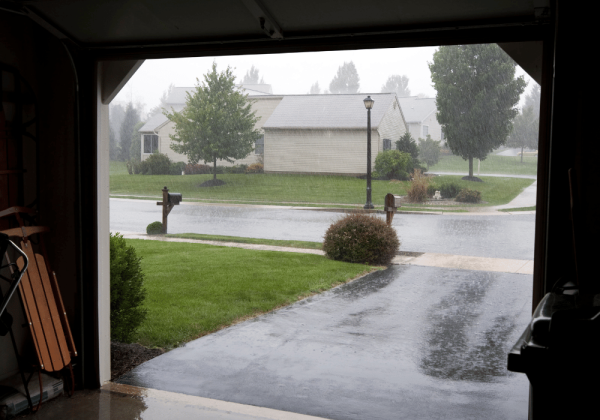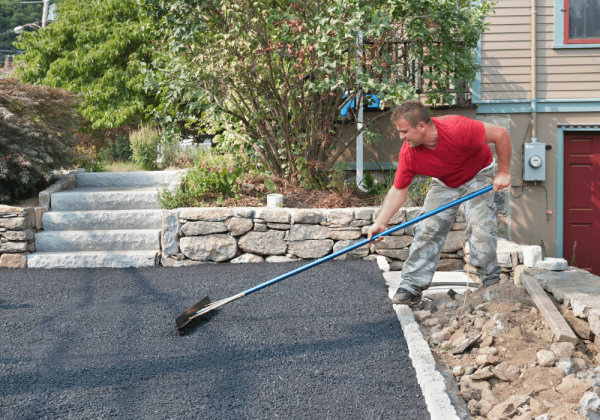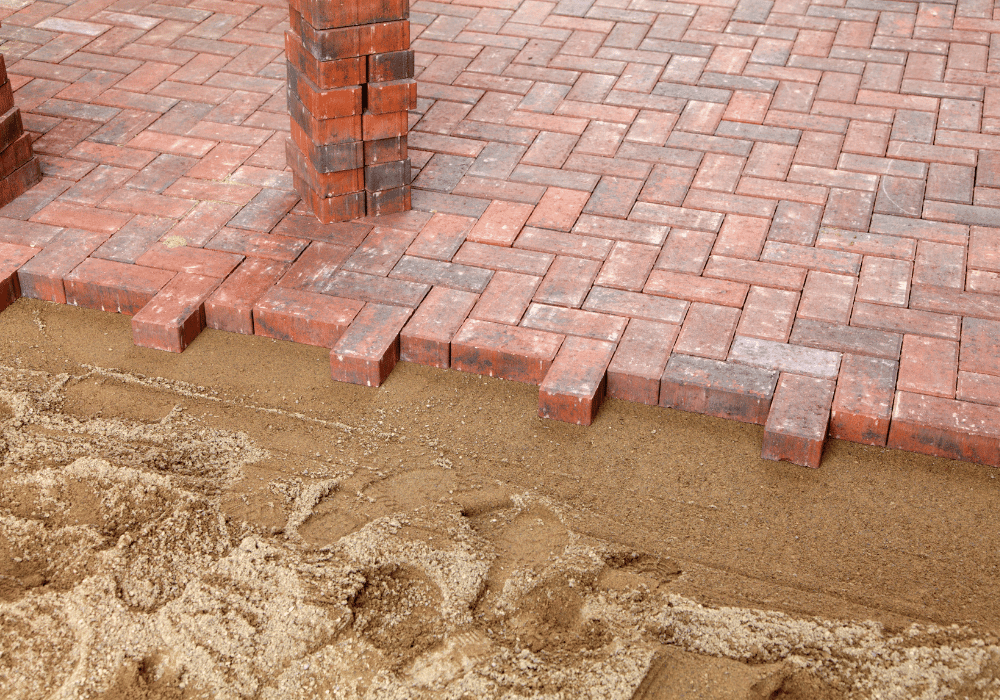Choosing to install a new driveway is a significant investment, and many factors come into play in determining its success and cost. Two of the most critical elements that can impact project outcomes are the terrain and the type of soil on your property. These natural features influence everything from preparation requirements to long-term durability. Below, we’ll explore how terrain and soil type affect driveway installation and what you need to know to make informed decisions.
The Role of Terrain in Driveway Installation
 The slope and elevation of your property significantly affect how water flows around your driveway. One of the key considerations in any driveway installation is drainage. Driveways installed on flat or uneven terrain may struggle with poor water runoff, leading to pooling, which can weaken the surface over time. Excess water can seep into the sub-base, washing it away or causing cracks during cold weather due to freezing and thawing cycles.
The slope and elevation of your property significantly affect how water flows around your driveway. One of the key considerations in any driveway installation is drainage. Driveways installed on flat or uneven terrain may struggle with poor water runoff, leading to pooling, which can weaken the surface over time. Excess water can seep into the sub-base, washing it away or causing cracks during cold weather due to freezing and thawing cycles.
On steeper terrain, water drainage can become more unpredictable. Without proper grading, runoff can erode the driveway’s edges or compromise its stability. Adding drainage features such as culverts, trenches, or swales during construction ensures water is directed away from the driveway, protecting its structure and your surrounding landscape.
The terrain also dictates the amount of preparation required before actual construction begins. Uneven land or steep slopes often need to be graded to create a level surface suitable for the driveway material. Grading involves reshaping sections of the ground, which can add time and cost to the project.
On properties with extreme slopes or challenging contours, additional retaining walls or reinforcement may be necessary to secure the base. These factors not only increase expenses but also highlight the importance of working with professionals who can assess and manage the unique challenges of your landscape.
How Soil Type Affects Driveway Installation
The type and condition of your soil determine how well it can support weight and withstand external pressure. Loose, sandy soils lack the stability required for a solid foundation, making the driveway susceptible to shifting or sinking over time. On the other hand, heavy clay soils tend to retain water, which can lead to poor drainage and frost heave, a condition where frozen water in the soil expands and damages the base of the driveway.
To address these challenges, proper soil testing is conducted before installation. If the existing soil isn’t suitable, it might need to be removed and replaced with a more stable material like gravel or crushed stone. Incorporating a strong sub-base ensures that your driveway can handle the weight of vehicles and resist environmental pressures.
Different soil types can also influence the choice of driveway material. For instance, asphalt or concrete driveways require a firmer base since they are rigid materials and more prone to cracking if the foundation shifts. Gravel, on the other hand, can adapt better to soil movement, making it a more viable option in areas with less stable soil.
Your contractor may recommend geotextile fabric for certain soil types to prevent the mixing of soil and sub-base materials. These fabrics create a protective layer that enhances stability and improves the driveway’s longevity, particularly in regions with challenging soil compositions.
Costs Associated with Terrain Challenges
Unexpected costs often arise when dealing with challenging terrain during driveway installation. Sites with uneven or sloped land may require additional grading, excavation, or fill material to create a suitable foundation. Grading alone can significantly increase costs, especially if specialized equipment or skilled operators are needed to complete the job.
For steeper terrains, retaining walls may need to be constructed for added support and to prevent undercutting of the driveway’s edge. These walls help distribute the load more evenly across the surface, but add tangible expense to the overall project. Addressing these challenges early in the planning phase is critical to avoid budget overages later.
Another factor impacting costs is how accessible your property is for excavation and material transport. Uneven or remote terrains require specialized equipment and can slow down project timelines. Gentle grades and flat sites, by contrast, are easier to work with and typically incur fewer labour and material costs. When receiving estimates, make sure to inquire about any additional fees related to terrain accessibility or equipment usage.
Costs Associated with Soil Challenges
If your project site has unsuitable soil, such as highly expansive clay or loose sand, contractors may need to excavate more deeply to remove it. This process involves hauling away the existing soil and replacing it with gravel, crushed stone, or other materials that provide better stability. The depth of excavation required depends on the severity of the soil’s limitations, with unstable soil demanding greater labour and equipment time.
Additionally, installing a base reinforcement layer, such as geogrid or geotextile fabric, can prevent soil-related issues and increase driveway longevity. Though effective, these measures can raise upfront costs.
Driveways placed on problematic soil conditions may require more frequent repairs or maintenance down the line, driving up long-term expenses. You may notice potholes, cracks, or dips forming prematurely if the soil isn’t adequately prepared. Investing in quality materials and professional installation at the outset reduces the likelihood of costly future repairs, making it a smart financial decision in the long run.
The Value of Professional Assessment
 Every property is unique, and so is every driveway installation project. Hiring professionals with experience in evaluating terrain and soil conditions ensures that your driveway is tailored for success. Contractors assess water drainage, grading requirements, and soil quality before recommending the best materials and techniques for your site.
Every property is unique, and so is every driveway installation project. Hiring professionals with experience in evaluating terrain and soil conditions ensures that your driveway is tailored for success. Contractors assess water drainage, grading requirements, and soil quality before recommending the best materials and techniques for your site.
By working with skilled experts, you can feel confident knowing your driveway will not only look great but also perform as intended. They’ll help you weigh costs against benefits, ensuring that the final solution suits both your budget and structural needs.
Attempting a DIY driveway installation or working with inexperienced contractors can lead to costly oversights. Poorly managed terrain or soil can result in drainage issues, structural instability, or premature failure of the driveway. Professional teams possess the tools, knowledge, and experience necessary to mitigate these risks and deliver a high-quality final product.
Ultimately, the guidance of skilled installers adds value by reducing long-term upkeep needs and ensuring your investment lasts for years to come.
Investing in professional driveway installation is a decision that pays off both in the short term and the long term. It ensures a durable, visually appealing, and functional addition to your property while protecting you from potential headaches caused by improper construction. With the expertise and precision that professional contractors bring, you can rest assured that your driveway will not only enhance curb appeal but also stand the test of time. Don’t compromise on quality—choose experienced professionals to make the most of your investment.

